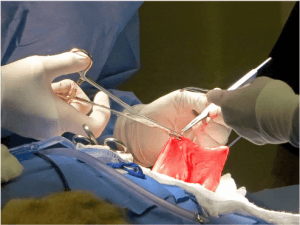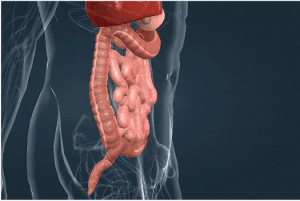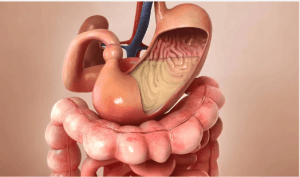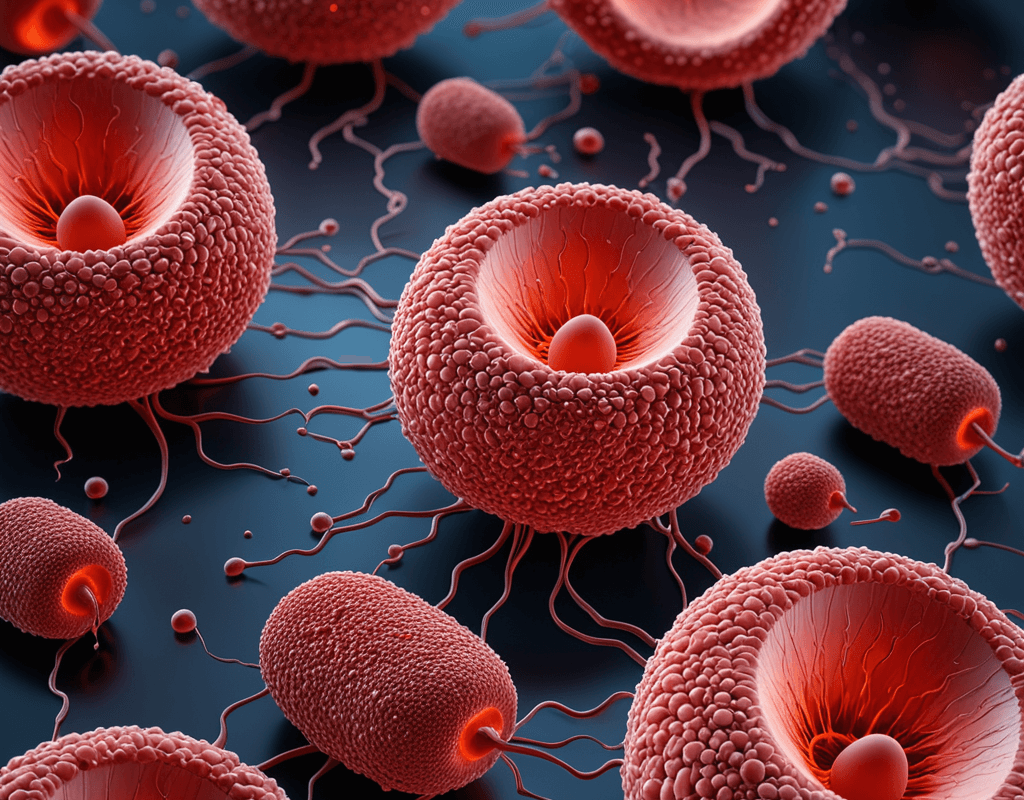What is Argon Plasma Coagulation?
Argon Plasma Coagulation (APC) is a minimally invasive medical procedure commonly used in gastroenterology. It utilizes a specialized electrocautery device to treat bleeding in the gastrointestinal (GI) tract. During the procedure, an argon gas flow is ionized into plasma and directed at the bleeding tissue. This plasma conducts electric current to the target area without direct contact, minimizing the risk of tissue damage.
APC is particularly effective in treating conditions such as gastric antral vascular ectasia (GAVE), angiodysplasia, and bleeding associated with tumors or ulcers. Its non-contact nature makes it a safer and less invasive option compared to traditional treatment methods.

Why is Argon Plasma Coagulation Used?
Argon Plasma Coagulation (APC) is primarily used to treat gastrointestinal (GI) bleeding. This minimally invasive procedure can effectively address bleeding caused by various conditions, including:
- Gastric Antral Vascular Ectasia (GAVE): This condition, characterized by abnormal blood vessels in the stomach lining, can lead to chronic bleeding and anemia.
- Angiodysplasia: Abnormal blood vessels, often found in the colon, can cause significant GI bleeding.
- Peptic Ulcers: When ulcers bleed, APC can help control the bleeding by coagulating the surrounding tissue.
- Tumors: APC can be used to coagulate and reduce bleeding in both benign and malignant tumors within the GI tract.
Recommended Reading: Ulcer Symptoms and Peptic Ulcers: Understanding the Signs and Treatments

How Does the Argon Plasma Coagulation Procedure Work?
Argon plasma coagulation therapy process is relatively straightforward and highly effective.
Here’s an overview of what patients can expect during the procedure:
- Preparation: Before undergoing APC, patients are typically instructed to fast for several hours. Sedation is administered to keep the patient comfortable throughout the procedure.
- Procedure: During APC, an endoscope—a thin, flexible tube with a camera—guides the doctor to the affected area in the GI tract. Through the endoscope, a small tube called an argon plasma coagulator releases argon gas. An electric current flows through the gas, ionizing it into plasma and directing it to the targeted tissue. This plasma allows the tissue to coagulate without direct contact, reducing the risk of deep tissue burns.
- Duration: The APC procedure usually lasts between 15 to 45 minutes, depending on the extent of the treatment area.
- Recovery: Following the procedure, patients are monitored for a few hours to ensure stability. Most individuals are discharged on the same day with minimal discomfort and can resume normal activities within 24 to 48 hours.

Benefits of Argon Plasma Coagulation Therapy
APC offers significant advantages over traditional methods of treating GI bleeding. The key benefits include:
- Minimally Invasive: With no incision required, APC is a preferred method for patients seeking non-surgical treatment.
- Precision: The plasma stream targets only the necessary areas, leaving surrounding tissue unharmed.
- Quick Recovery: Most patients recover rapidly and experience little to no pain after the procedure.
- Reduced Risk of Complications: Non-contact coagulation reduces the likelihood of perforation and deep tissue injury.
- Effective for Multiple GI Conditions: From angiodysplasia to tumor bleeding, APC is versatile and effective for various GI issues.

Potential Risks and Complications
Although generally safe, like any medical procedure, APC has some associated risks. These risks are minimal but important to understand:
- Mild Bleeding or Pain: Some patients may experience slight bleeding or discomfort post-procedure, typically resolving within a few days.
- Perforation (Rare): There’s a low risk of perforation or creating a small hole in the GI tract lining.
- Stricture Formation: In rare cases, repeated APC treatments can lead to strictures, or narrowing of the esophagus, stomach, or colon.
To minimize risks, it’s crucial to work with an experienced medical professional skilled in argon plasma coagulation therapy.

Who is a Candidate for Argon Plasma Coagulation?
Argon Plasma Coagulation (APC) is a suitable treatment option for individuals with certain gastrointestinal (GI) conditions that cause bleeding. Ideal candidates include patients who:
- Experience chronic GI bleeding due to conditions like Gastric Antral Vascular Ectasia (GAVE) or angiodysplasia.
- Have bleeding tumors that are difficult to treat with other methods.
- Suffer from ulcers that frequently bleed and do not respond well to other treatments.
- Are unable to undergo more invasive surgical procedures due to age or other health conditions.
Read more about: Ulcers treatment
Before recommending APC, physicians thoroughly assess each patient’s medical history, current health status, and specific GI condition to ensure the best outcome.

Argon Plasma Coagulation vs. Other GI Treatments
When compared to other gastrointestinal treatment options, Argon Plasma Coagulation (APC) offers several advantages:
- Non-Contact Coagulation: Unlike laser therapies that require direct tissue contact, APC utilizes ionized gas, reducing the risk of tissue damage.
- Versatility: APC can be applied to a wide range of conditions without requiring significant adjustments to the procedure.
- Safety Profile: The non-contact nature of APC minimizes the risk of burns and perforation, unlike some alternative methods.
Common alternative treatments, such as laser therapy and thermal coagulation, can also be effective in stopping bleeding. However, these methods may carry a higher risk of complications.
Read more about: Gastrointestinal treatment
What to Expect During Recovery
After an APC procedure, patients typically experience mild symptoms, if any. Here’s what most patients can expect:
- Minor Discomfort: Some patients report mild abdominal discomfort or bloating.
- Diet Adjustments: In certain cases, doctors might suggest avoiding hard-to-digest foods for a few days.
- Follow-Up Appointments: Routine check-ups ensure the treatment’s effectiveness and monitor for any complications.
Overall, APC’s recovery period is short, and the majority of patients can return to their normal routines quickly.
Frequently Asked Questions (FAQ)
1. What is Argon Plasma Coagulation?
Argon Plasma Coagulation (APC) is a non-contact, minimally invasive procedure that uses argon gas ionized into plasma to coagulate tissue in the gastrointestinal tract. This is particularly useful for stopping bleeding caused by conditions like ulcers, tumors, and vascular abnormalities.
2. How effective is argon plasma coagulation therapy for GI bleeding?
APC is highly effective in managing GI bleeding, especially for conditions like GAVE and angiodysplasia. It’s widely recommended due to its ability to control bleeding precisely with minimal complications.
3. Is argon plasma coagulation painful?
The procedure is performed under sedation, ensuring patient comfort. Post-procedure, patients may experience mild discomfort, but significant pain is uncommon.
4. Are there risks associated with the argon plasma coagulation procedure?
While APC is safe, potential risks include minor bleeding, mild discomfort, and in rare cases, perforation or strictures. Working with an experienced medical professional helps minimize these risks.
5. How long does recovery take after an APC procedure?
Recovery is typically quick. Most patients can return to their usual activities within 1-2 days. Follow-up visits are usually scheduled to monitor progress.
6. Who performs argon plasma coagulation?
APC is performed by gastroenterologists, often in a hospital or specialized clinic setting. These medical professionals have the necessary expertise in endoscopic procedures and gastrointestinal care.
Final Thoughts
Argon Plasma Coagulation (APC) represents a significant advancement in the treatment of gastrointestinal bleeding. Its precision, safety profile, and minimal recovery time make it a valuable option for patients suffering from chronic bleeding or conditions unresponsive to traditional therapies.
If you or a loved one is considering APC therapy, consulting with a qualified gastroenterologist, such as those at GastroMed Clinic, is crucial. A specialist can provide personalized advice, outlining the benefits and potential risks associated with the procedure.





